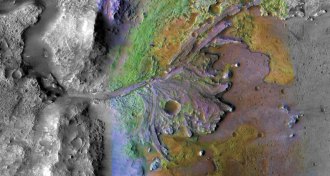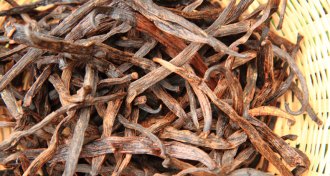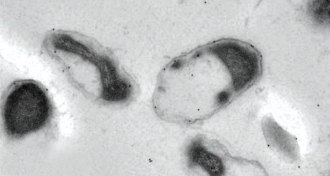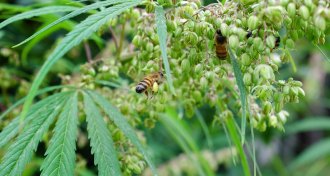Uncategorized
-
 Planetary Science
Planetary ScienceAn orbiter glitch may mean some signs of liquid water on Mars aren’t real
The way that scientists process data from a Mars orbiter creates what look like signs of saltwater, but may actually be nothing, a study finds.
-
 Neuroscience
NeuroscienceBrain implants let paralyzed people use tablets to send texts and stream music
People with paralysis could control commercially available tablets with their brain activity, researchers show.
-
 Tech
TechA new airplane uses charged molecules, not propellers or turbines, to fly
A small aircraft prototype is powered by ionic wind flowing in one direction and pushing the plane in the other.
-
 Science & Society
Science & SocietyDo you know how your drinking water is treated?
Editor in Chief Nancy Shute discusses drinking water quality in the United States and the latest research on water treatment technology.
By Nancy Shute -
 Science & Society
Science & SocietyReaders react to the SN 10 and Jocelyn Bell Burnell
Readers expressed their thoughts about the SN 10 scientists, Saturn's hexagons and Jocelyn Bell Burnell.
-
 Tech
TechHow Twitter bots get people to spread fake news
Automated bot accounts on Twitter help spread misinformation by strategically encouraging people to make it go viral.
-
 Archaeology
ArchaeologyAn exploding meteor may have wiped out ancient Dead Sea communities
An archaeological site not far from the Dead Sea shows signs of sudden, superheated collapse 3,700 years ago.
By Bruce Bower -
 Particle Physics
Particle PhysicsNuclear ‘knots’ could unravel the mysteries of atoms
Skyrmions might help loosen scientific snarls in studies of atomic nuclei.
-
 Planetary Science
Planetary ScienceNASA’s Mars 2020 rover will look for ancient life in a former river delta
NASA’s Mars 2020 rover is going to Jezero crater, the site of an ancient river delta that may harbor signs of life.
-
 Archaeology
ArchaeologyA Bronze Age tomb in Israel reveals the earliest known use of vanilla
Residue of the aromatic substance in 3 jugs dates to around 3,600 years ago.
By Bruce Bower -
 Life
LifeGut bacteria may guard against diabetes that comes with aging
A friendly microbe in the gut may be the key to staving off insulin resistance, a study in mice finds.
-
 Animals
AnimalsHemp fields offer a late-season pollen source for stressed bees
Colorado’s legal fields of low-THC cannabis can attract a lot of bees.
By Susan Milius